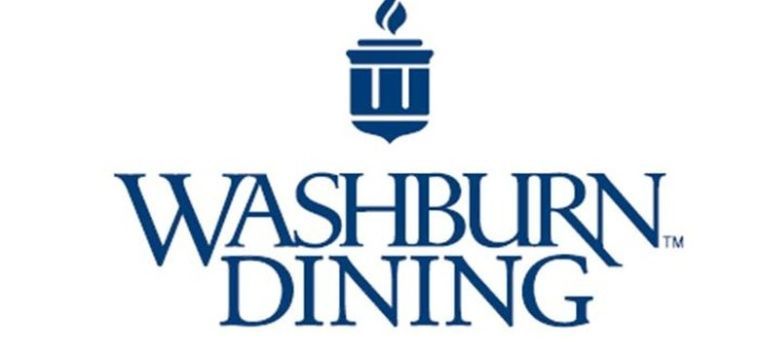Chartwells faces health code violations
March 26, 2014
Only one month after Washburn students returned for the 2013 fall semester and found increased prices on cafeteria food, the Kansas Department of Agriculture cited Chartwells, the sole provider of Washburn’s cafeteria food, Nov. 20 with 10 critical health code violations. Critical health code violations are divided into two categories: Priority and Priority Foundation. Priority violations are the more serious of the two, but both categories are taken very seriously.
As for the Priority violations, an employee discarded gloves covered in raw egg and put on new gloves without washing their hands and then preceded to handle cooked food. Rice was then found in a pan in the walk-in cooler with no date marked on it.
The employer in charge could not say when the rice had been cooked. Three cooked meat items and cut lettuce were being stored in the walk-in cooler with expiration dates labeled for early to mid-November, almost a month and a half after original preparation.
Cooked meat items are only allowed to be kept for seven days after being cooked. Expired meat can lead to food poisoning. It is not just the meat products that were being handled incorrectly.
Vegetables and other produce were being washed below the rim of a directly plumbed food prep sink as opposed to being held over the sink while washing the produce.
The remaining six violations were Priority Foundation violations. These included three hand washing violations, a knife with dried debris placed between two containers on the salad bar, pre-wrapped cookies without allergy warnings and broken and cracked plastic containers in the salad area.
Daniel Minton, junior biology major, says he was surprised that there were so many violations. He believes that with so many people depending on food from the cafeteria, especially those students whom Washburn requires to buy a multi-thousand dollar meal plan, a company would enforce strict food safety policies.
According to the KDA’s official report, it gives establishments 10 days to correct the violations. This was not done however, and a notice of non-compliance was issued. Consequences of non-compliance can include an embargo of the food with which the violations were associated, revocation of license, or possibly closure of establishment.
Ultimately, however, none of those penalties were enforced. The KDA just required a follow-up inspection, which took place Jan. 21. All previous violations had been corrected, though Chartwells was cited with one new critical violation.
Chartwells has provided food services to Washburn since 2006.
“The health and safety of our guests is always Chartwells Higher Education Dining Services’ highest priority,” said Adam Cordova, director of dining services. “Upon learning of the circumstances, Chartwells took immediate action to eradicate [the] issues. Chartwells is working closely with the University in support of both corrective efforts as well as proactive measures to ensure that such instances do not occur again.”
Chartwells has never had more than four critical violations in a single inspection until this incident. Cordova is proud to be partnered with Washburn. After being informed of this inspection, however, students like Minton are not as happy.
“With the prices we’re paying, I think we deserve food that doesn’t violate 10 health codes,” said Colin Moriarty, senior math major.
There is frustration on all sides, but both Washburn and Chartwells have assured that something like this will not happen again.



